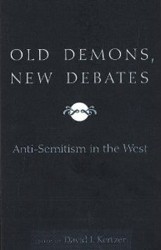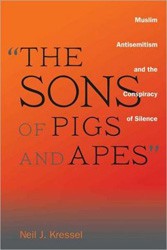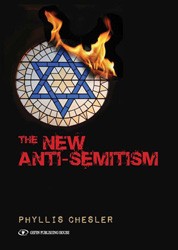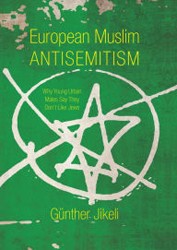“I believe we should be frank: The world hates the Jews. The world has always and will continue to do so.” With these words David Mamet, the novelist and Pulitzer Prize-winning playwright, begins his dissection of internalized Jewish anti-Semitism, the anti-Semitism of the self-hating Jew, the wicked son of the Haggadah who asks, “What does this ritual mean to you?”
Classic anti-Semitism — the anti-Semitism of the Inquisition, the Protocols of the Elders of Zion, the Holocaust — is a given, discussed only in passing. Mamet’s argument is with the Jew who has bought into anti-Semitism, who identifies as a Jew but who has no knowledge of Judaism, who feels obligated to learn about Kwanzaa but not Tu B’Shevat, who admires Anne Frank but not Israelis who defend their homeland, who turns his back on the struggles and achievements of his immigrant grandparents.
In brief, stinging chapters, Mamet demolishes the position of this apostate and argues that he will never fully assimilate and overcome the hatred of the Other. He will always be outside, he will always be lonely, he will never find satisfaction. Then Mamet tacks and attempts to steer the apostate back to his tribe. In this difficult world, Mamet argues, we all want to belong, to be part of a group that understands us, works with us, has a purpose greater than ourself and the present. Professionally Mamet has found this in the theater, but he finds it most profoundly in his tribe, his race, and its practice. To the apostate — the ever seeking, never satisfied— Mamet urges ritual; in ritual we give up our illusion of freedom and, in its name, our pursuit of one imagined ideal after another, and let long-tested practices force us to submit to the fearsome and inevitable changes that make up our lives.
Mamet’s language is strong and his arguments cutting. Will his angry indictment lead the wicked son back to shul to “watch and listen, and…eventually receive this or that clue,” lead him to the Torah, to its wisdom, and to the mystery and awe that is our life and our gift from God? Or will the book lay out the arguments for those who agree with Mamet? Whatever the case, Mamet’s probing and bitter examination of the apostate will linger in any reader’s mind. Glossary
Maron L. Waxman, retired editorial director, special projects, at the American Museum of Natural History, was also an editorial director at HarperCollins and Book-of-the-Month Club.





